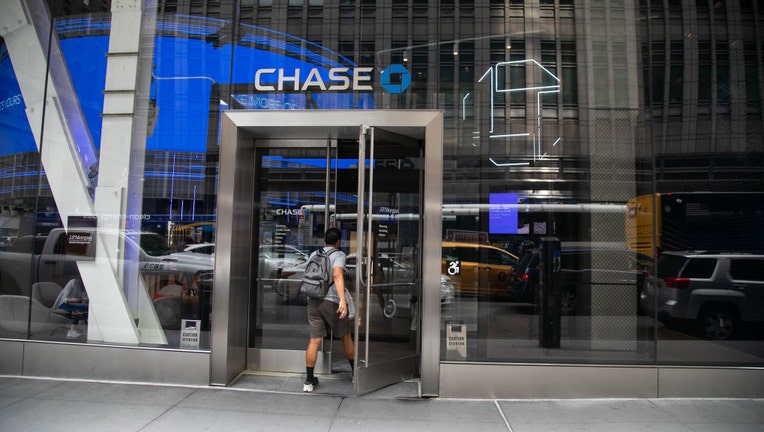Prepare to pay for your bank accounts, Chase warns customers

FILE-A person walks into a Chase bank branch in New York City. (Michael Nagle/Bloomberg via Getty Images)
Chase customers may soon have to pay to have a bank account with the financial institution.
Marianne Lake, the CEO of Consumer & Community Banking for Chase, warns that new rules from financial regulators in Washington, D.C., would cap overdraft and late fees and will make routine banking more expensive for consumers, the Wall Street Journal reported.
Lake shared with the Wall Street Journal that the company could charge customers for several now-free services, including checking accounts and wealth-management tools if the rules become law in their current form.
RELATED: Chase customers sue bank over 'predatory' fees on bounced checks
This news comes as federal agencies like the Consumer Financial Protection Bureau have released a plan calling for an $8 cap on credit card late payment fees and a $3 cap for overdrafting bank accounts.
The Wall Street Journal noted in 2010 that lenders warned customers that they would impose fees on debit cards due to a cap on some card charges, but few followed suit because customers threatened to change banks.
This year, the Consumer Financial Protection Bureau passed a rule in March placing restrictions on credit card late fees. Still, several bank industry groups sued to prevent the rule from becoming law.
The CFPB also plans to limit debit card fees and how much banks can charge Venmo and CashApp for accessing and using consumer data.
According to the Wall Street Journal, new bank capital rules would make it difficult for financial institutions to lend by requiring them to hold more reserves against mortgages and credit card loans.
Although the credit card late fee limitation isn’t a law so far, several credit card organizations are prepared to pass on costs to customers. Chase has created an initial plan to raise interest rates while taking a practical stance on underwriting credit card loans.
This story was reported from Washington, D.C.

